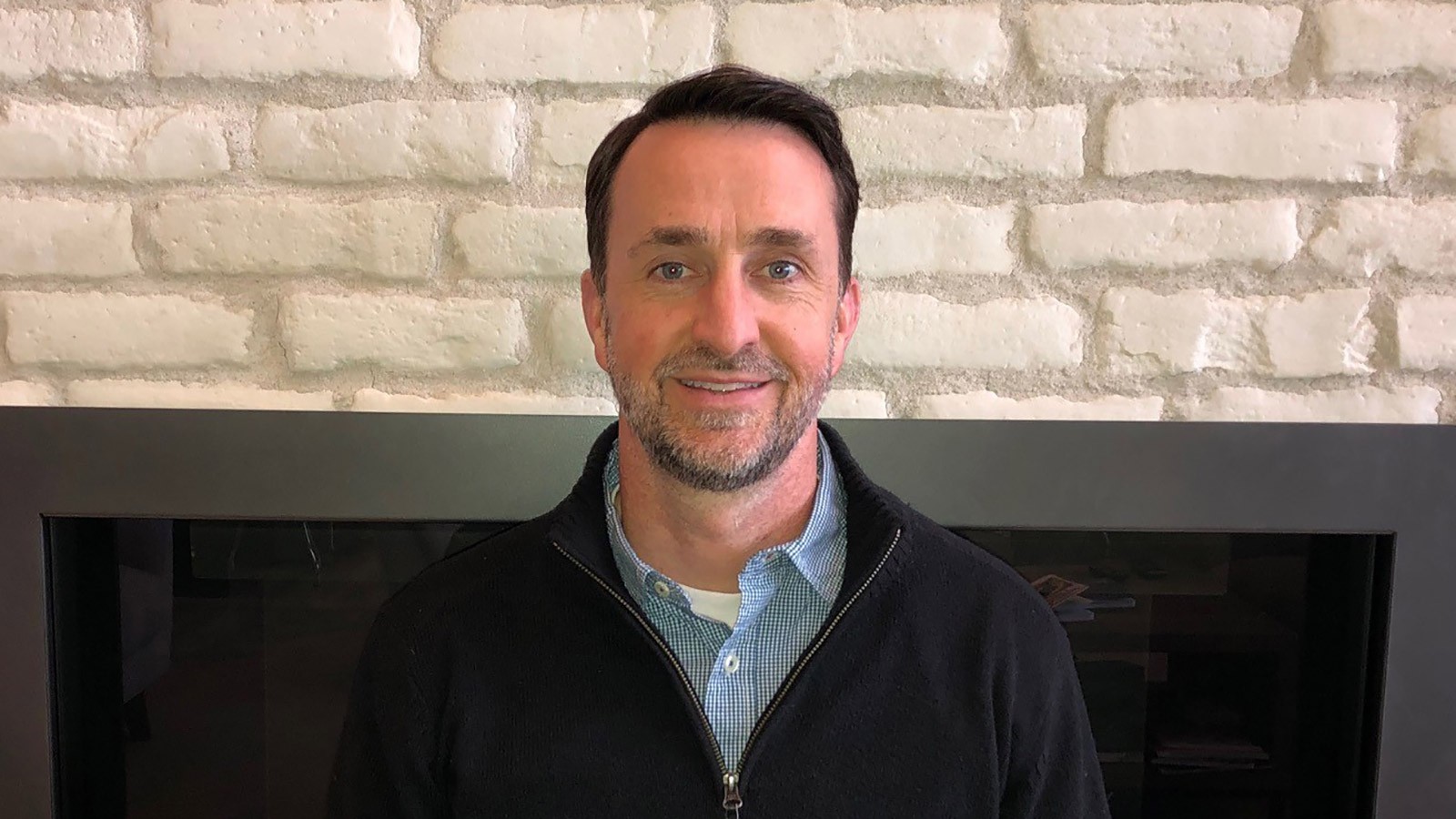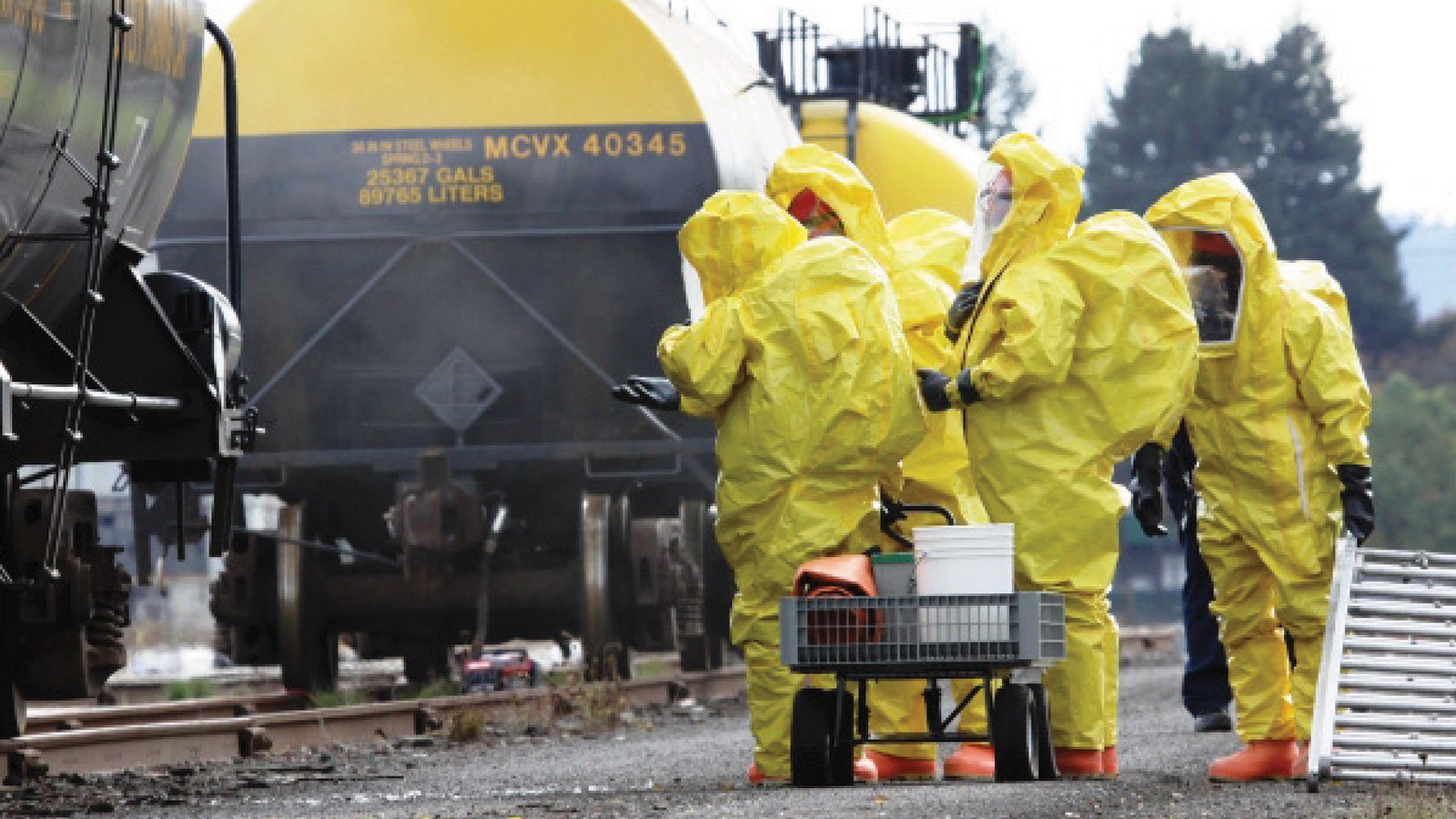USU Industrial Hygienist Among Nation's First OHSMS Registered Auditors
By Mary-Ann Muffoletto |
USU's industrial hygiene program is one of only four undergraduate degree programs in the nation accredited by the Applied Science Accreditation Commission of the Accreditation Board of Engineering and Technology. Program requirements include coursework in industrial hygiene-specific disciplines, biology, chemistry, epidemiology, toxicology and environmental engineering, as well as a professional internship; all of which prepare graduates to pursue professional certification.
Utah State University public health faculty member Carl Farley is one of the first five industrial hygienists in the nation to complete requirements to become an Occupational Health and Safety Management Systems Registered Auditor. The new certification, instituted in spring 2020 by the American Industrial Hygiene Association, provides organizations with a higher level means of identifying and addressing potential workplace hazards, according to the AIHA website.
“Just as an organization needs a certified public accountant to audit its financial operations, it needs a certified safety professional to audit its occupational health and safety programs,” says Farley, senior lecturer in the Department of Biology’s Public Health program. “If done right, auditing not only improves occupational health and safety performance, but improves the organization’s operational quality and productivity as well.”
With his new certification, Farley, who works as an independent consultant, looks forward to bringing case studies back to the classroom.
“In our coursework, we cover how management of programs requires assessment of performance, and thorough auditing is a critical component of assessment,” he says. “Our program, which includes multiple field trips to workplaces, focuses on applying principles learned in the classroom to real-world challenges.”
A USU alum, Farley was employed for more than 20 years in environmental health and safety management in the semiconductor industry before joining USU’s faculty in 2013. He holds a master’s degree from the University of Utah and is a certified industrial hygienist and a certified safety professional. He currently serves as advisor for the department’s three public health degree programs, which include industrial hygiene, environmental health and public health education, and teaches multiple courses within those programs.
Industrial hygiene, he says, is not a widely known career field, yet industrial hygienists are in high demand.
“Industrial hygienists, also known as exposure scientists, are practitioners who recognize, evaluate and control anything that causes injury, illness or disease in workplace,” Farley says. “For the past 10 years, we’ve had 100 percent placement of our industrial hygiene graduates and we aren’t even close to meeting the demand.”
Every spring, he says, industry and government recruiters contact USU seeking new graduates and graduate schools “hope we can send prospective students their way.”
“But our students have already secured employment well before graduation,” Farley says. “And now, with the COVID-19 pandemic causing employers added concerns about employee safety, demand is projected to grow even more.”
He notes that, prior to the pandemic, few people knew what “PPE” (personal protective equipment) meant or what a N95 respirator was.
“COVID-19 is an excellent case study in the introduction of a new hazard, how controls are developed to reduce exposure and how managers, public officials and public opinion affect decision making,” Farley says. “Industrial hygienists in all sorts of workplaces will play a key, and very visible role, in ensuring workplace safety.”
USU’s industrial hygiene program is one of only four undergraduate degree programs in the nation accredited by the Applied Science Accreditation Commission of the Accreditation Board of Engineering and Technology. Program requirements include coursework in industrial hygiene-specific disciplines, biology, chemistry, epidemiology, toxicology and environmental engineering, as well as a professional internship; all of which prepare graduates to pursue professional certification. USU’s student chapter of the American Industrial Hygiene Association, has been recognized several times as the organization’s “Student Local Section of the Year.”
“Most people spend a significant portion of their lives in the workplace,” Farley says. “Our graduates, equipped with rigorous education in science and management, are making an important impact in both the private and public sectors.”
USU industrial hygienist Carl Farley, senior lecturer in the Department of Biology's Public Health Program, is one of the first five professionals in the nation to become an Occupational Health and Safety Management Systems Registered Auditor.
USU's industrial hygiene program is one of only four ABET-accredited undergraduate programs in the nation. The program boasts a 100 percent placement rate for its graduates during the past 10 years and demand is projected to grow. Courtesy NIH.
WRITER
Mary-Ann Muffoletto
Public Relations Specialist
College of Science
435-797-3517
maryann.muffoletto@usu.edu
CONTACT
Carl Farley
Senior Lecturer and Advisor for Public Health Programs
Department of Biology
435-797-2566
carl.farley@usu.edu
TOPICS
Education 331stories Health 306stories Alumni 181stories Rankings 66storiesComments and questions regarding this article may be directed to the contact person listed on this page.









